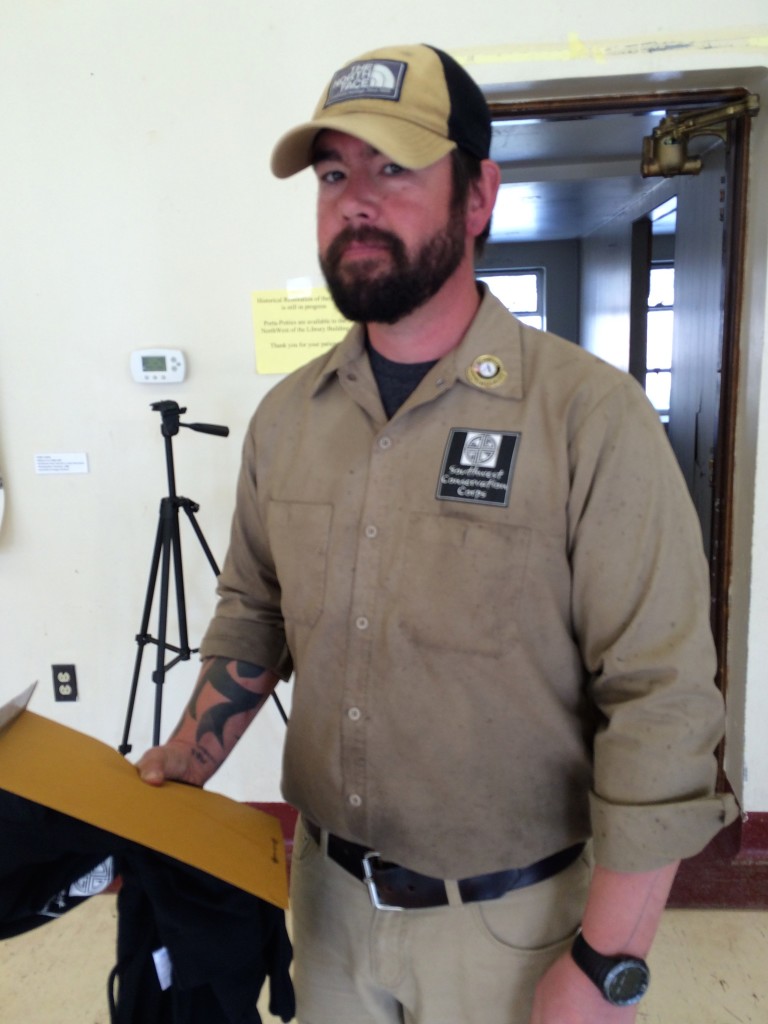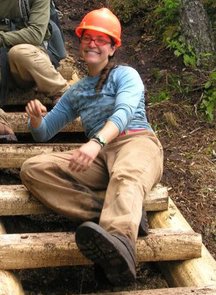From Southwest Conservation Corps
After graduating from high school in Northern Illinois, Mitch decided to join the United States Marine Corps. He feels fortunate to have been deployed 11 times – eight of which were combat deployments – to a variety of places, including Kosovo, Iraq, Afghanistan and Africa. During his time in the Marines, Mitch worked with four different infantry units and gained a great deal of experience. However, when he completed his service in 2012 and began looking for a civilian job, Mitch discovered that there were few careers where he could apply the skills he learned as an infantryman.
During his time in the military, Mitch got married and had two kids. Completing his service allowed him and his family to move to Alabama to give his kids the opportunity to get to know more of their relatives. Mitch was pursuing a degree in nursing when a friend told him about Southwest Conservation Corps (SCC) and its AmeriCorps-based Veterans Fire Corps program. As his friend explained, the Corps would give Mitch the opportunity to learn about wildfires and get involved in careers in the outdoors. Mitch decided to apply and started with SCC in spring of 2015 along with the friend that had introduced the idea.
Mitch feels that SCC taught him a lot about wildland fire, conservation and living and working in the outdoors. Though he wasn’t completely sold on being in wildland fire as a long-term career, the Veterans Fire Corps program gave him some of the hard skills needed to be valuable for positions with federal land management agencies. His time with SCC also gave Mitch the opportunity to network with supervisors that work within the U.S. Forest Service and the Bureau of Land Management. Mitch isn’t certain about he wants to do after the Corps, but he knows he wants to continue working outdoors and eventually be able to find a permanent position with a land management agency somewhere in Colorado, where he and his family currently live.





